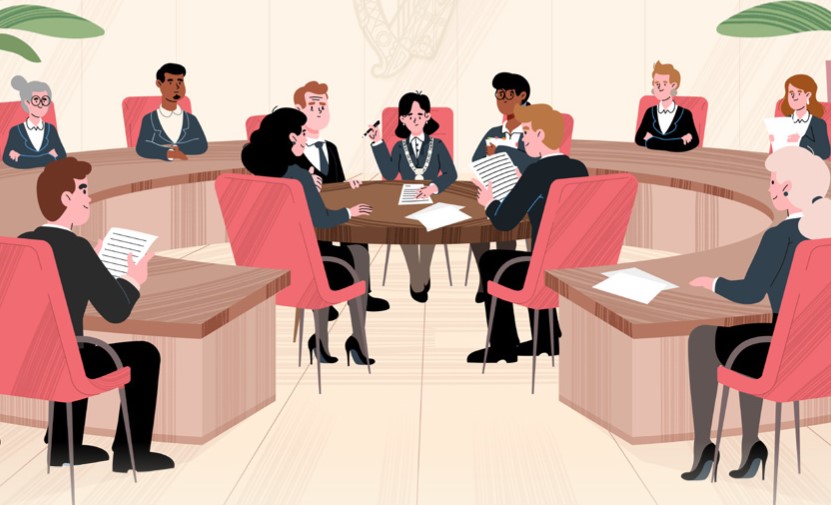Councillors are Policy Makers
Councillors make decisions about the operation of the local authority and the services it provides. For example, they decide on County/City Development Plans and local regulations, known as bye-laws.
Decisions taken by the elected Council are called reserved functions because they are reserved for the Council. Reserved functions are set out in law and relate to important areas like strategic development or finance.
Functions performed by local authority employees (the executive) are called executive functions. These generally relate to the day-to-day operation of the local authority.
As members of the Council, councillors make decisions on:
- The Annual Budget of the local authority
- The rate of Local Property Tax
- The Local Economic and Community Plan
- The County/City Development Plan
- Local Area Plans
- The Climate Action Plan
These decisions inform the broad range of functions and services delivered by the local authority, including:
- Housing
- Planning
- Road improvements
- Funds for community initiatives
- Library services
- Fire and emergency services
- Promotion of arts and culture
- The record of protected structures
- Parking zones
- Litter prevention and control
Local authorities also deliver and implement national policies at a local level, for example, Active Travel , Housing for All and the National Planning Framework .
